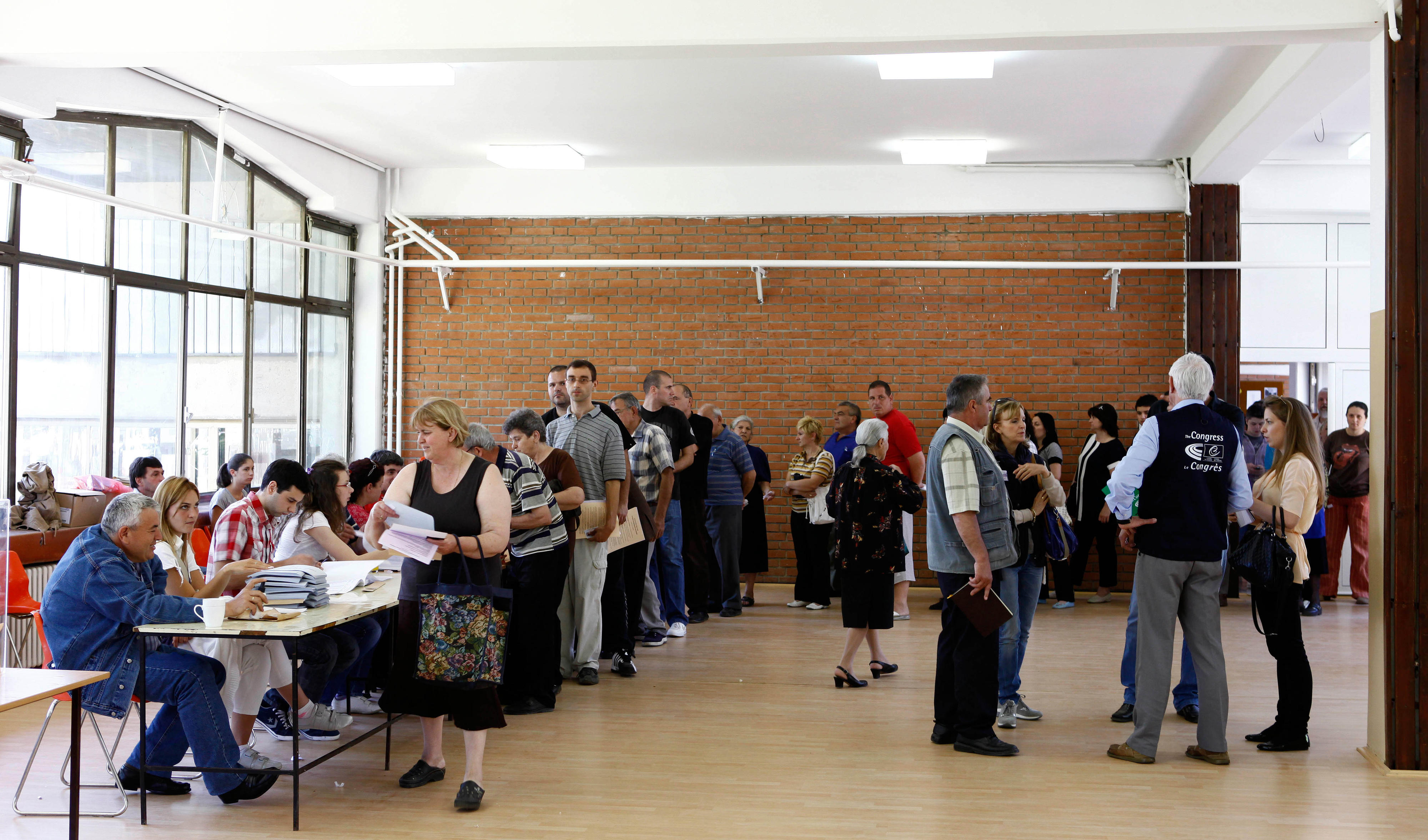A polling station at the regional elections in Serbia
Copyright© Congress of local and regional authorities, via flickr, CC BY-ND 2.0
Political situation Government consolidating its position
German and European support is guided by the goals pursued by the EU: the rule of law and promotion of human and minority rights, a stable democracy and a market economy, legislation that is aligned with EU standards, the establishment of efficient and transparent administrative bodies, and a willingness to pursue unrestricted regional cooperation.
The precondition for Serbia to join the EU continues to be that relations with Kosovo are normalised and the process of reconciliation with the other countries of the former Yugoslavia continues.
In April 2022, early presidential and parliamentary elections were held, along with local elections in Belgrade. President Aleksandar Vučić was re-elected with about 60 per cent of the vote. His opponent, Zdravko Ponoš, received about 19 per cent. While Vučić's Serbian Progressive Party (SNS) lost its absolute majority in parliament, it has been able to continue to govern the country together with partners.
In January 2025, Prime Minister Miloš Vučević (SNS) resigned after drawn-out student protests. Đuro Macut has followed him as Prime Minister. The protests were sparked by a fatal accident in Novi Sad in November 2024. A concrete canopy above the entrance of a railway station collapsed, killing 16 people. The building had recently been renovated. Protesters believe that the accident was a result of corruption and mismanagement. The authorities had cracked down on the protests. Since that time, things have not settled down. The protests continue.
As at: 18/08/2025
